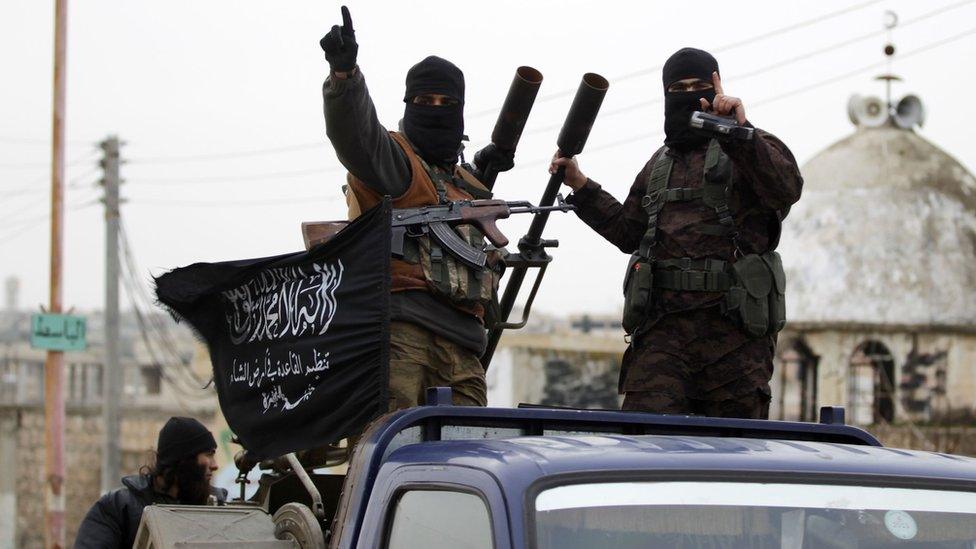Is David Cameron right about the 70,000 Syrian 'moderates'?
- Published

So-called moderate rebels have struggled to counter al-Qaeda's affiliate, al-Nusra Front
In arguing the case for military action against Islamic State fighters in Syria, Prime Minister David Cameron has said the UK could join forces with around 70,000 Syrian fighters on the ground. But who are these fighters and can the government really rely on their help?
David Cameron's exact words here were: "We believe there are around 70,000 Syrian opposition fighters - principally the Free Syrian Army - who do not belong to extremist groups... and with whom we can co-ordinate attacks on ISIL."
This was said in the context of the government's response to criticism that it does not have a coherent wider strategy for defeating so-called Islamic State (IS) or bringing an end to the Syrian civil war.
Whitehall officials say the source for this 70,000 figure is the JIC, the Joint Intelligence Committee, drawing on assessments by the FCO, UK intelligence agencies and open sources.
'Let down'
Officials say the figure refers to Syrian rebel fighters who fulfil two very basic criteria:
1) They renounce terrorism - ie they are not part of so-called IS or al-Qaeda
2) They are "committed to a pluralistic Syria", ie one in which minorities such as Christians and Shias would be equal citizens.
Independent experts say the figure of 70,000 is broadly accurate but there is a high degree of scepticism as to how many could actually be persuaded to fight IS militants instead of the Syrian regime, let alone be moulded into a cohesive, effective force.
There are also questions over just how "moderate" and pluralistic many of the Islamist factions are within this number. It is far from certain that, if empowered in a post-Assad, post-IS Syria, battle-hardened Sunni rebels would be happy to share power with Christians and Alawites.
Deep wounds
After more than four years of civil war in Syria it is clear that the most highly motivated and effective rebel forces are the Islamists. Non-Islamist rebels feel badly let down by the West which failed to supply them with weapons, or carry out airstrikes on the regime after the mass poison gas attack in 2013.
Finally, the idea that even in a post-Assad Syria, rebels who have spent four years fighting his forces will then want to team up with them in a joint effort to defeat IS militants is not impossible but does require a lot of optimism.
The wounds of this war run very deep and while IS fighters are disliked by most Syrians there are many more who hate President Bashar and his regime even more.
All this is, of course, a separate but not entirely unrelated issue to the rights or wrongs of bombing IS leaders and their command centres in Syria, which Whitehall officials say are actively planning attacks on this country.
But it does bring into question whether the ground force part of the wider strategy is actually viable at present.